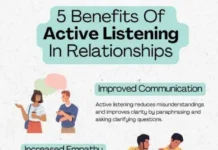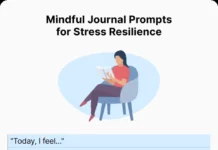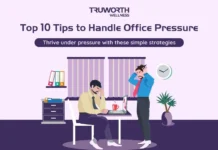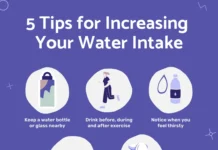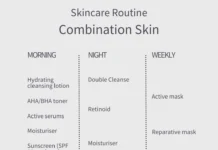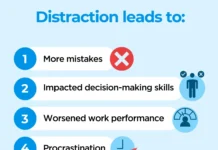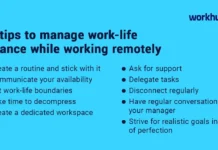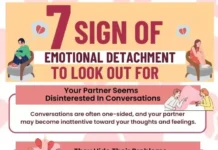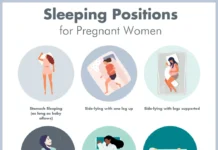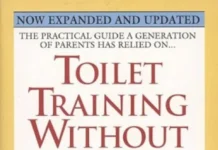Bulimia is a serious eating disorder that involves both bingeing and purging.
“Bingeing” means you eat a large amount of food in a short period of time. “Purging” is an unhealthy way to rid your body of those extra calories. (1) People with bulimia sometimes make themselves vomit to eliminate the calories they consume.
But that isn’t the only way to purge. They may also follow a strict diet, fast, exercise excessively, or use laxatives, pills, or enemas. The harmful cycle of bingeing and purging can affect both physical and mental health. (2)
The bingeing and purging cycle isn’t even an effective way to lose weight. Indeed, many people with bulimia actually gain weight over time.
Your body starts absorbing calories from the moment you put food in your mouth. If you vomit right after a very large meal, you typically eliminate less than 50 percent of the calories you consumed. Laxatives get rid of 10 percent of the calories you eat.
While purging may make you weigh less temporarily, it’s most likely water loss and not true weight loss. (2)
Causes and Risk Factors of Bulimia
Doctors aren’t sure exactly what causes bulimia. Your genes, family history, mental health status, life experiences, self-esteem, and other factors may all play a role. (3)
Scientists are also studying whether certain chemical changes in the brain, such as changing levels of serotonin, may affect a person’s risk of developing eating disorders like bulimia. (3)
Some factors may make you more likely to develop bulimia. These include: (1,2)
- Having a poor body image or low self-esteem
- Experiencing stressful life changes
- Having a history of substance abuse
- Being diagnosed with depression, anxiety, or another mental health disorder
- Experiencing trauma or abuse or suffering from post-traumatic stress disorder (PTSD)
Duration of Bulimia
The duration of bulimia varies from person to person. While roughly half of patients will fully recover from the condition within 10 years, others won’t. For many, bulimia is a lifelong struggle. Symptoms may come and go or be constant. (6)
Complications of Bulimia
Bulimia can have dangerous effects on your body. In certain cases, the eating disorder can even lead to death.
Some risks that can develop from bulimia include: (1,9)
- Severe dehydration
- Electrolyte imbalances, which can lead to heart or kidney failure
- Stomach damage or ulcers
- Irregular periods (in women)
- Tooth decay
- Chronic sore throat
- Indigestion, heartburn, or acid reflux
- Constipation, diarrhea, or other problems with bowel movements
- Osteoporosis
- Infertility in men and women
BIPOC and Bulimia
Historically, eating disorders have been portrayed as a problem affecting young, heterosexual, white women. In fact they affect people of all races and ethnicities. (10)
Black and Hispanic Americans and Bulimia
A study published in 2011 found that Black teenagers were 50 percent more likely than white teens to exhibit symptoms of bulimia.
In another study, researchers found Hispanic adolescents were significantly more apt to suffer from bulimia compared with non-Hispanics.
Experts say eating disorders may be partially due to environmental stressors, such as abuse, poverty, or racism. Because women from the Black, Indigenous, and People of Color (BIPOC) communities are exposed to more of these stressors, they may be more susceptible to disorders like bulimia. (10)
Resources We Love
Your journey with bulimia will require lots of support and resources. Here are Everyday Health’s top recommended organizations, articles, and websites with the information and support you may need.
Favorite Organizations for Essential Bulimia Info
National Eating Disorders Association (NEDA)
NEDA is the largest nonprofit organization dedicated to supporting individuals and families affected by eating disorders. They provide information and support to build a community of hope. We especially love their online screening tool, which can help you determine if you need to seek professional help.
The Alliance for Eating Disorders Awareness
This organization is a national, nonprofit dedicated to providing programs and activities aimed at outreach, education, early intervention, and advocacy for eating disorders.
Office on Women’s Health
This government-run site provides a wealth of information about bulimia and treatment options.
Academy for Eating Disorders (AED)
The AED is a professional organization that promotes excellence in research, treatment, and prevention of eating disorders.
Favorite Online Support Network
ANAD
ANAD is an organization committed to providing free services that are accessible to all. We love their recovery mentor program, which matches you with an individual who has recovered from an eating disorder and can help support you.
Eating Disorder Hope
Eating Disorder Hope offers online support groups dedicated to providing assistance and encouragement. The groups are led by licensed professional counselors.
Favorite App
Recovery Record: Eating Disorder Management
This app is designed to help you manage your recovery from eating disorders. It lets you track your mood and meals. You can also connect with your therapist or dietitian and receive feedback.
Favorite Blogs
National Eating Disorders Association Blog
The NEDA’s blog features personal accounts of people who’ve battled eating disorders and recovered. There are also entries that provide educational information about eating disorders.
Favorite Resource for Becoming an Advocate
Eating Disorders Coalition (EDC)
The EDC’s mission is to advance the federal recognition of eating disorders as a public health priority. They build relationships with Congress, federal agencies, and national and local organizations to advocate for awareness.
Favorite Annual Meetings
International Conference on Eating Disorders (ICED)
The AED hosts this annual scientific conference, which highlights research and education related to eating disorders. Experts from around the world attend to learn about emerging breakthroughs in the field.
Favorite Retreats
The Meadows Ranch
This 50-acre property located in Arizona provides a relaxing retreat so you can focus on regaining your health. Their experts specialize in combining approaches to treat a range of eating disorders, including bulimia. Representatives work with your health insurance company to make your treatment as affordable as possible.
Editorial Sources and Fact-Checking
- Bulimia Nervosa: Symptoms and Causes. Mayo Clinic. May 10, 2018.
- Bulimia Nervosa: Signs, Symptoms, Treatment, and Self-Help. HelpGuide. September 2020.
- Bulimia Nervosa. U.S. Department of Health and Human Services Office on Women's Health. August 28, 2018.
- Bulimia Nervosa. National Eating Disorders Association.
- Bulimia Nervosa: Outlook/Prognosis. Cleveland Clinic. December 12, 2019.
- Smith K. The Aftermath of Eating Disorders: Long-Term Effects of Bulimia. Psycom. November 25, 2018.
- Eating Disorders. Mayo Clinic. February 22, 2018.
- Prevention. National Eating Disorders Association.
- Bulimia Nervosa. National Eating Disorders Collaboration.
- People of Color and Eating Disorders. National Eating Disorders Association.
- Franco KN, et al. Eating Disorders. Cleveland Clinic. July 2017.




